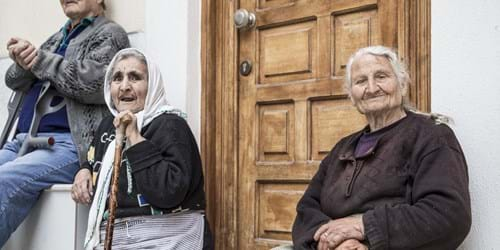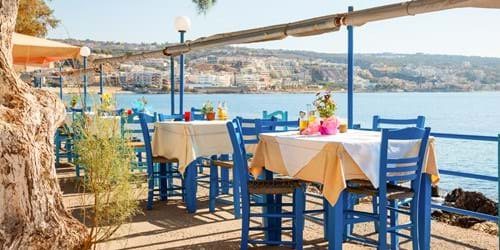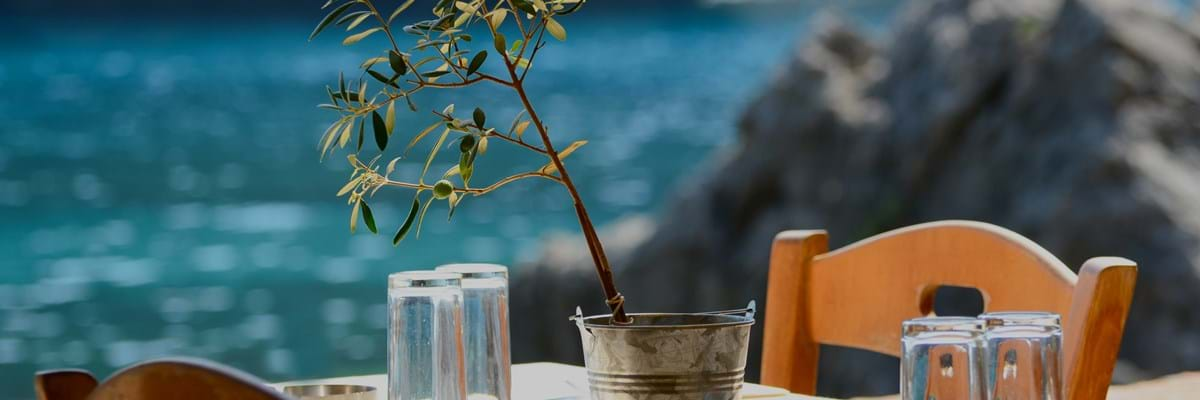‘You arrive as a stranger, and leave as part of the family’ – the headline on a guest review of one of Olympic Holiday destinations perfectly sums up the warmth of the welcome you can expect in Greece.
There’s a saying “The Greeks have a word for it” and in this case the word is ‘Filoxenia’, a concept of hospitality and kindness that regards visitors to the country as far more than tourists.
Filoxenia in the ancient myths
From the classical heritage of the Iliad and the Odyssey to the critical culture of today’s online travel bloggers, the relationship between host and guest has always been crucial to the success of a vacation.
Even the father of the Greek gods, Zeus, is sometimes referred to as Xenios, the guardian of travellers, and the poet Ovid wrote of a poor, elderly couple who offered food and wine to heavily-disguised Zeus and Hermes, and were rewarded for their generosity when the gods revealed their identities.

Now this Xenia has become a natural part of everyday Greek life, as friends old and new are habitually greeted with plenty of refreshment on even a fairly casual visit, and will respond by bringing cakes, wine, sweets and gifts for children.
Greece is known to have been open to travellers from ancient times, when hostility to strangers was still widespread across Europe, and its people soon realised that encouraging peaceful “invasions” could help their economy.
With around 30 million visitors now arriving in Greece each year, hoteliers and restaurateurs could simply exploit the commercial benefits, but the reaction of holidaymakers suggests Filoxenia is alive and well.
Filoxenia and the tourists
The review mentioned earlier was a TripAdvisor comment on Norma’s Village, a family-run hotel and apartments on Kalymnos, where you can book a stay through Olympic Holidays.
The friendly welcome is emphasised by a number of previous guests, with one especially grateful to “sociable” Norma for help in retrieving a phone left in a taverna.

Another family arrived to find a wedding banquet taking place, and were invited by the bride and groom to join in, observing: “They know how to party.”
Family-run accommodation available through Olympic also includes Taxiarchis Apartments, Symi, where the breakfast eggs come from the owner’s chickens, while the apt name speaks for itself at Filoxenia Apartments near Tholos village, Rhodes.
The welcome extends well beyond hotels, however, as you will discover with an evening at any worthwhile taverna, or at a family-owned attraction like the Gentilini Winery on Kefalonia.
Foloxenia goes both ways
The great writer Homer understood Filoxenia, contrasting in the Odyssey the entertainment offered to Odysseus during his travels with the misbehaviour of visitors to his home while he was away.
So please note that the obligation works both ways, with the guest expected to offer respect and appreciation for the host.

Perhaps the most disastrous breach of Filoxenia, reported in Homer’s Iliad, caused the Trojan War – although in anyone’s language the stealing away of his host’s wife by Paris of Troy showed rather more ingratitude than pinching a couple of hotel towels.




